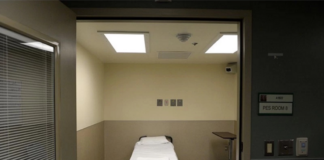Tag: assertive community treatment
Kendra’s Law Must Be a Beginning, Not an End
I believe that, as things are right now, forced treatment can be justifiable. But we need to move studies and research forward, move mental health treatment forward into an era where forced treatment is obsolete.
Chasing that Elusive Insight
The psychiatric concept of insight rests on the assumption that the psychiatrist, designated sane, knows what’s best. But if we question that assumption and consider that the medical model of mental illness may be incorrect, then the question of which party actually possesses insight becomes less clear.
Reflections on a Decade of Assertive Community Treatment
Sometimes I am crazy and sometimes I need help, but that help must not be forced upon me. I need to direct my own care; I need to be listened to. ACT is a method of social control that has more to do with saving money than assisting those in need. Money is saved by turning patients' homes into hospitals.
Extended Leave
Without doubt, Extended Leave profoundly curtails one's freedoms and rights, and the threshold for what is deemed “unacceptable” behaviour is invariably lowered. My only crime was being offensive towards an ACT team member. It seems that the goal I am now reduced to fighting for is merely the right to be rude in my own home.
The Helping Room
Every culture has its share of individuals who break down in bewilderment. People who hallucinate, behave beyond norms, seek to die, think in strange ways.
CHOICES Back on Track
Last year I reported that CHOICES, Inc. had lost its way and was implementing an ACT team. There is no doubt in my mind that CHOICES was on the wrong path, but the new Executive Director is committed to getting CHOICES back to a peer-run program.
The Mental Health Reform Act of 2016 (SB 2680) Would Be...
There is indeed a crisis in the mental health business. The crisis derives from psychiatry's spurious and self-serving premise that all significant problems of thinking, feeling, and/or behaving are brain illnesses that are correctable by psychiatric drugs.
Dear Boston Globe, Part IV: A Taste of Your Own Medicine
The Boston Globe paints a picture (in the vivid way that they so love to do) that pins the system’s decline primarily on budgetary issues, but there is more than one way for a system to be ‘broken.’ In fact, where the Globe goes most wrong in their latest piece, ‘Community Care,’ is in their failure to adequately recognize that the system has always been broken in one way or another in this country.
A Diluted Murphy Bill Clears the House and Goes to the...
Organized psychiatry, committed irrevocably and wholeheartedly to drug pushing and to their corrupt and corrupting relationship with pharma, simply will not countenance the fact that their primary product is fundamentally flawed and destructive. So they hire a PR company; they fund and lobby politicians; they parrot slogans; and they encourage one another to ever-increasing heights of self-congratulation. But they will not commission a definitive study to clarify and assess the scale of this problem once and for all. And the reason for this inaction is because they know that it would be bad for business. It would "cause a lot of people to stop taking their medications."
#Diversity? — What “Solidarity” Really Looks Like
What would it look like if national peer-run mental health organizations and other national leaders came out with statements in support of other movements' struggle for freedom from oppression? What would it look like if we were truly unified in solidarity? We would have community-based centers providing intentional support, open 24 hours a day, instead of crowded jail cells holding people in pain. It wouldn't be easy, but we have to do it.
The Murphy Bill, HR 2646 — a Heinous Piece of Legislation...
The National Coalition for Mental Health Recovery is calling upon all people of like minds, who care about individuals who need mental health services, to ACT. It is urgent. Please call your representative in the House of Representatives to vigorously oppose HR 2646 on Tuesday, July 5, 2016. And, call your Senator to insist that the Senate reject any amendments or changes to mental health legislation from the House by Friday, July 8, 2016. For more information about this Call to Action, please click here.
In the Matter of the Hospitalization of Mark V
Today, July 1, 2016, the Alaska Supreme Court issued its Opinion in In the Matter of the Hospitalization of Mark V. What strikes me the most about the case is that Mark's expressing the view that a psychiatric drug he was being required to take is poison, that it had side effects related to his sexual performance, and that it was killing him were all cited as proving Mark was delusional. As readers of this site know, these drugs can quite reasonably be characterized as poison, they do cause sexual dysfunction, and they are quite lethal to many many people, shortening lives on average by 25 years for those in the public mental health system, such as Mark.
A CALL TO ACTION: The Murphy Bill Passed the E&C Committee but...
As you read this, people with lived experience all around the country are mobilizing to educate our federal legislators about why the Helping Families in Mental Health Crisis Act (H.R. 2646) should be defeated. Education is the key. As executive director of the National Coalition for Mental Health Recovery, I am issuing a call to action. We need to ramp up our efforts before this backward piece of legislation becomes law. We need to get in touch with our legislators and their staffs, contact the media, make some noise! We need to exercise the proverbial strength in numbers. And we need all of this now!
The Presidential Primary & Forced Outpatient Psych Drugs
This month the candidates for President compete in our State of Oregon, so this is a very good time to ask the following question: “How do you stand on the controversy of forced outpatient mental health drugs?” This is my 40th year working as an advocate for people labeled “disabled,” and I know that the topic of involuntary psychiatry can be a little complicated for people. After all, if one of our beloved family members becomes irrationally self-destructive, we can become desperate for help. However, this is such an important topic that we need to go deeper than just a bumper-sticker answer.
Societies With Little Coercion Have Little Mental Illness
Coercion — the use of physical, legal, chemical, psychological, financial, and other forces to gain compliance — is intrinsic to our society’s employment, schooling, and parenting, but it isn’t to less “civilized” societies. Coercion fuels miserable marriages, unhappy families, and what we today call mental illness. Psychiatrist E. Fuller Torrey, in Schizophrenia and Civilization, states “Schizophrenia appears to be a disease of civilization.” But Torrey is a strong advocate for coercive treatments, including forced medication — even though his own research shows a stronger relationship between severe mental illness and European-American civilization than with hypothesized biochemical agents that have never been found. Still, he has he not considered the toxic effects of coercion.
















